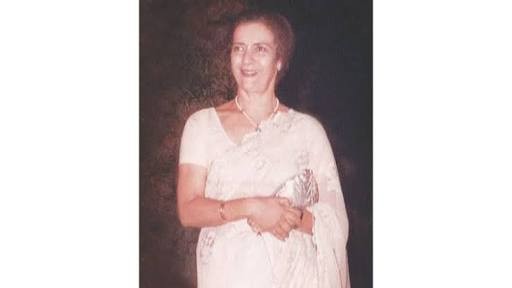
Zuhra Karim will continue to live in our hearts and minds as a true pioneer of women in journalism in Pakistan

"Zohra, this is Zuhra", this is how the late Zuhra Karim would begin each conversation every time she phoned -- clearly enjoying the fact that we shared a name. The reasons for her calls varied from requests for ads or an article for She. However, shortly before her illness she would often call to draw my attention to reports of human rights violation, particularly if they concerned women, expecting me as a member of the Human Rights Commission to help redress the wrong.
Of course I knew Zuhra Karim much before I met her in Karachi sometime in the early seventies. Growing up in Dhaka in the sixties, She magazine was a publication my sisters and I looked forward to each month. In fashion-backward (as far as shalwar-kamiz styles went) East Pakistan we were enamoured by the glamour of our sisters in West Pakistan, eagerly following the trends in style the magazine covered each month. Priced at one rupee (as I recall) and printed in black and white, She was, however, much more than a fashion magazine. While the fashion spreads drew readers into the pages of the magazine, they were also made aware of the more pertinent and urgent issues that confronted women in Pakistan.
A graduate of the London School of Economics, Zuhra Karim launched She in June 1963 at a time when there was no English language publication aimed primarily at women. In her first editorial (as reported by several publications after her death), she wrote about the need for women to fight illiteracy, prejudice and ignorance - recognizing their more significant role in society as the "hand that rocks the cradle". Never quite a staunchly feminist magazine, She, nevertheless played an important role in challenging the traditional and stereotypical role of women both in society and as depicted in the media. As long as she could, Zuhra wrote editorials every month that called for an end to discriminatory laws and practices and the need for positive legislation to support women’s rights and status.
She also played an important role in encouraging and developing women journalists. Several women journalists working in the mainstream print media today started their careers at She, with Zuhra Karim as their mentor. But it was not only women that she employed and trained. Writing a tribute to her for Dawn, Javed Jabbar recalled Zuhra giving him his first job as an Assistant Editor, She, in 1966-67. He continued to write for the publication through the seventies. His is a byline I remember from the days I was introduced to She.
Apart from fashion and the focus on women-related issues, She always carried book and art reviews and works of fiction. In crucial ways, the magazine and the editor converged. If many of the women depicted in She were there for glamour and style, there was an equal number present for their substance -- both by being profiled and as contributors. Zuhra Karim encapsulated both style and substance in her own personality. Charming, even while being blunt, she remained resolute in promoting meaningful journalism.
I don’t recall exactly when but at some stage She ceased publication and re-emerged in the early eighties. Its reincarnation, coinciding with the birth of the Women’s Action Forum, also saw Zuhra taking a bolder position editorially on women’s rights, covering many of the issues that concerned women in those days when the military regime of General Ziaul Haq had mounted a frontal attack on women’s rights. In the name of "Islamisation", discriminatory laws were being introduced that threatened to erode the rights won after decades of struggle.
Although not a flag bearer of women’s rights at marches organised by WAF, Zuhra Karim continued to support the movement through her magazine. In fact, during the period several WAF activists, including Najma Sadeque, got space in She to write about women’s rights.
Zuhra Karim’s was a tough act to follow. Striking a fine balance between commercial interest and women’s journalism, she succeeded in making the magazine a financially viable proposition. It often meant badgering agencies and clients to give ads and then to recover payment. However, at its prime, She’s circulation and ad content surpassed those of the leading news magazines -- all due to Zuhra’s grit and perseverance.
As Zuhra Karim’s illness developed, the magazine as she conceived and founded also began to die a slow death with her. Today, with pages and pages of fashion spreads, there is little of substance in She. I was also saddened to see no mention of the founder’s passing away on She’s website and only one post on her demise on its Facebook page. But Zuhra Karim will continue to live in our hearts and minds as a true pioneer of women in journalism in Pakistan.